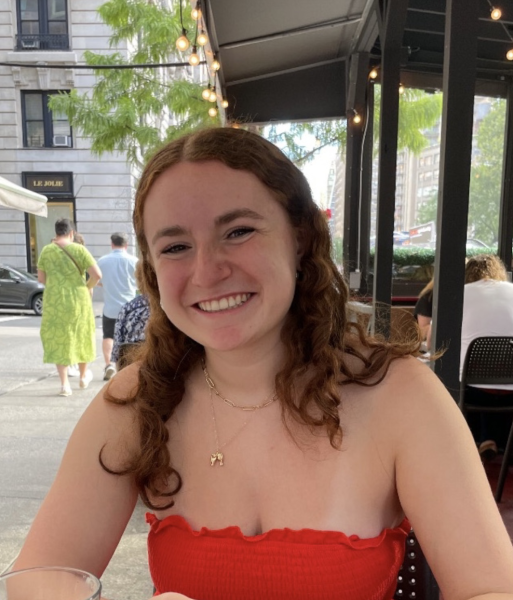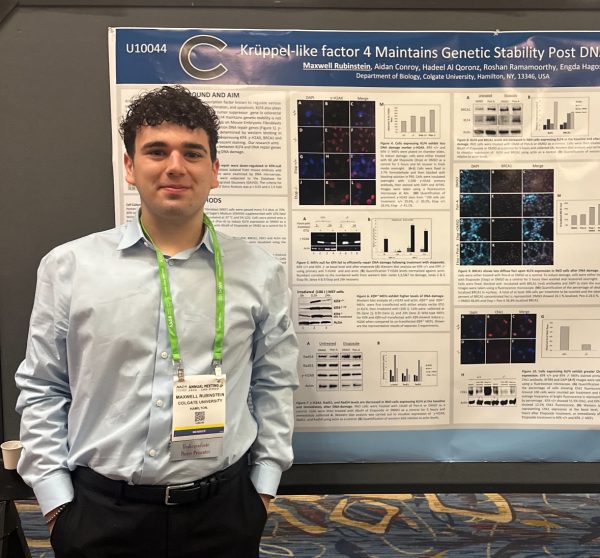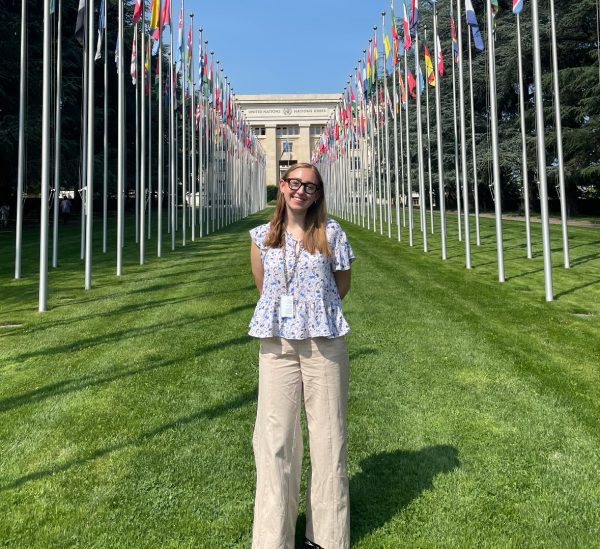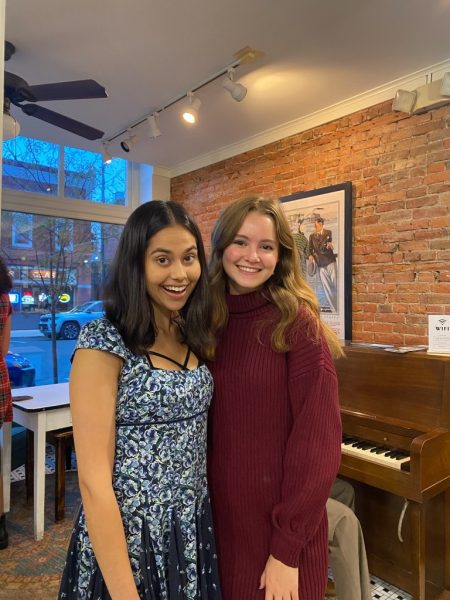Jesmyn Ward: An Important Presence in the Celebration of Women
Colgate marked the 50th year since women have been accepted as full time students in 2020. Due to COVID-19, the university’s celebration of this first coeducational class and all who followed has been pushed back to 2022. The university is celebrating by amplifying voices of women in academia and providing programming to support female community members.
Jesmyn Ward, two-time winner of the National Book Award and author of many acclaimed novels including “Sing, Unburied, Sing,” and “Men We Reaped,” took part in a question and answer session on March 4 as part of the week-long celebration of 50 years of women at Colgate and as the next installment in Colgate’s Living Writers lecture series.
Professor of English Dana Cypress played a major role in planning the event, coordinating with other professors to determine its flow and reaching out to students who could ask Ward questions. Cypress was excited by the opportunity to invite Ward to Colgate.
“As we were celebrating some of the amazing achievements of women at Colgate, and those positions as both students and faculty, [Ward] was kind of like a perfect person to invite because … in addition to being very generous with her time and her attention to our students and the questions that they had, she’s also one of the most prolific and celebrated living writers of our time.”
Cypress is very familiar with Ward’s work, since she read it in graduate school, used it in her research and taught it in her courses.
“There’s probably very few interviews published that I have not read or listened to. And I have read all of her fiction and I think the majority of her nonfiction writing, so it was very cool for me, I think in the same way that it was probably cool for the students to see the writing come alive with the presence of the author being here with us. So it was amazing. I just thought it was a really amazing event, an amazing opportunity for me personally and professionally.”
During the event Professor of English CJ Hauser, the author of “The From-Aways” and “Family of Origin” among other celebrated works of fiction, joined Ward onstage as an interviewer.
“It was an amazing opportunity for me as a writer and as a professor to get to speak to someone whose work I teach in my own classes. And to talk to someone whose work I just personally admire and connect with … to get a chance to interview her was just a dream, truly,” Hauser said.
At the event, Ward was asked questions by Cypress and Hauser as well as a group of students familiar with her work.
Ward’s work primarily deals with the experiences of Black children in the United States, specifically in Mississippi. Ward cited the murder of Trayvon Martin as one example of an event that motivated her to represent the difficulties faced by Black youth in America.
“Part of the reason that that is the case is because I’m really interested in how children bear burdens that they shouldn’t have to bear and how they live through various traumas that they shouldn’t have to live through … [Trayvon Martin] was never referred to as a child and that bugged me… [I want to] push back against Black children being perceived as adults even as they are children. I think that’s one of the reasons I return to writing about Black children again and again. I want to acknowledge how [treating them as adults] plays out in their lives.”
During the session, Ward often referenced the difficulty of writing about traumatic events, though she emphasized the importance of being truthful in the depiction of people’s lives and stressed her commitment to accurately representing the lives of the people in her community.
“Part of honoring [the community I write about] … is being honest about what they live through … about the hardships of their lives … to soften the narratives, if I weren’t so honest about the people I write about, I feel like that would dishonor them in some way.”
Ward’s responses were deeply personal and discussed the difficulties of writing about topics that hit close to home. She discussed her struggles with writing her first memoir and with writing characters that reminded her of her family and community.
Cypress said that Ward’s work resonates with her students.
“I think what readers of Ward’s work find is a certain kind of honesty, vulnerability, rigor and tenderness in her work that draws them to her and what she has to say. And also the worlds that she builds are immersive, so it’s really easy to get lost in the world that she builds and the characters that she creates.”
Hauser said her students similarly appreciate Ward’s work.
“When I teach her work, the conversations that are possible with students I think are really meaningful to me … it just allows a lot of really amazing conversations between me and between the students as well.”
Jadan Hand, a sophomore concentrating in biology and Spanish, attended Ward’s event after hearing rave reviews from her mother and reading the author’s most recent work, “Sing, Unburied, Sing.”
“One of the things that particularly struck me was just how approachable she seemed, and I knew from her pictures that she was pretty young, but she’s really very young, and personally for me, that’s really exciting because she’s a new voice … She’s probably going to be writing for a very long time. I can only imagine her being more and more significant as the years go by … And it was really, really refreshing to be able to be in a space with somebody who’s speaking so freely about their experiences and their works and is willing to share so much of themselves.”
Hauser said that Ward’s presence on campus would be incredible at any point in time, but that her participation in the celebration of women at Colgate emphasizes the importance of intersectional conversations about feminism.
“We usually wind up talking about feminism when we talk about coeducation and I think thinking about feminism in a really intersectional way and sort of inspecting our evolving definitions of feminism and gender is important to me … beyond her just being a person we’d be lucky to have on campus at any time, I think it was nice to encourage discussions of the intersectionality of Blackness and feminism, which comes up so much in her work.”
The event closed with a question from an audience member who asked Ward what advice she most often gives her students. Ward replied with advice that resonated particularly with Cypress and Hauser, who both commented on its value to students, particularly those planning to pursue a career in writing. Ward’s message was one of perseverance.
“You can get thousands of ‘no’s,’ but you just need one ‘yes,’ so don’t silence yourself … keep putting yourself out there until you find that person that’s going to say yes … that’s important to tell students, especially beginning writers,” Ward said.

Sophie Naylor is a junior from Middletown, CT studying geology, geography and Arabic. She has previously served as a staff writer for the Baker’s Dozen...













